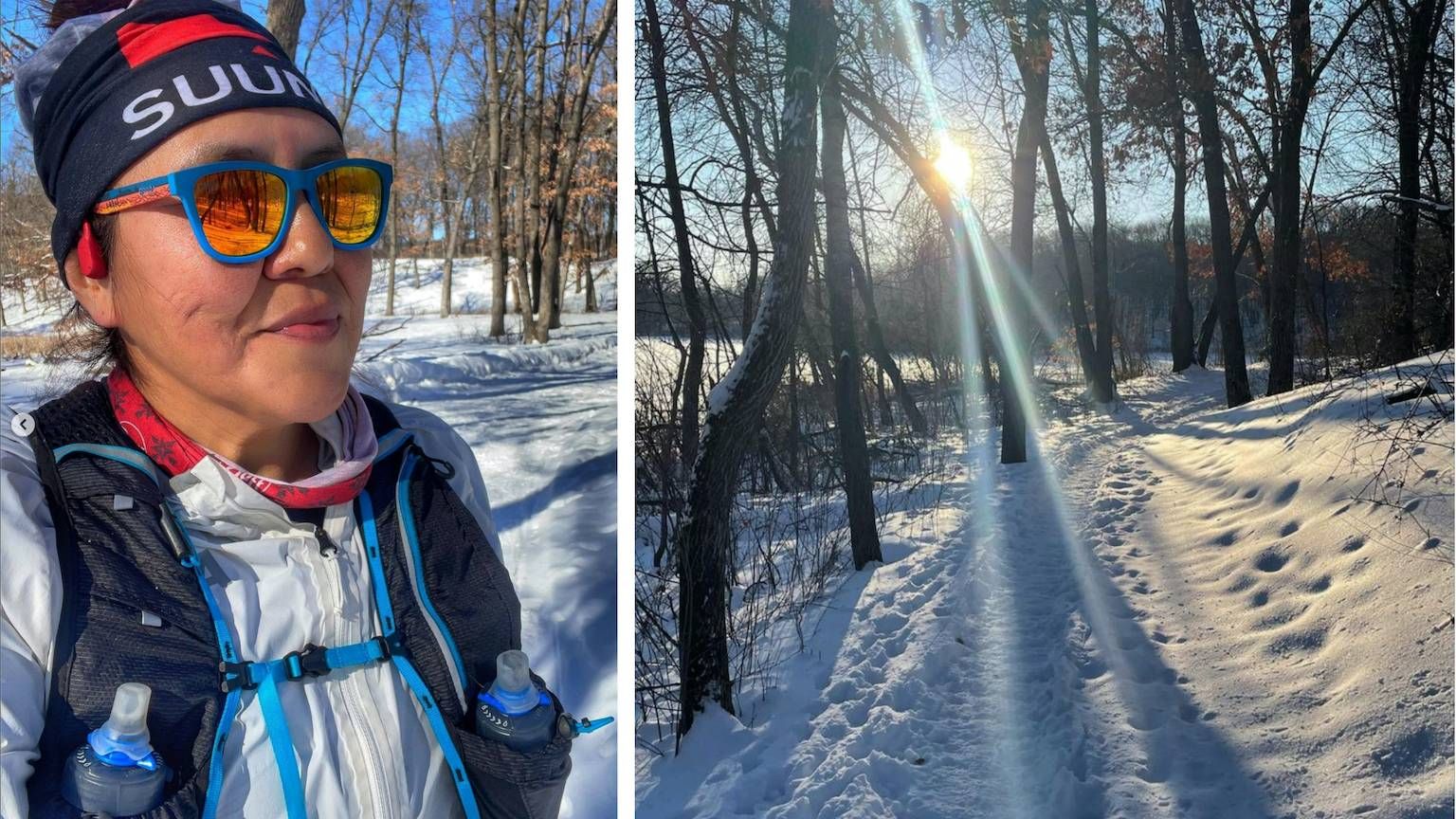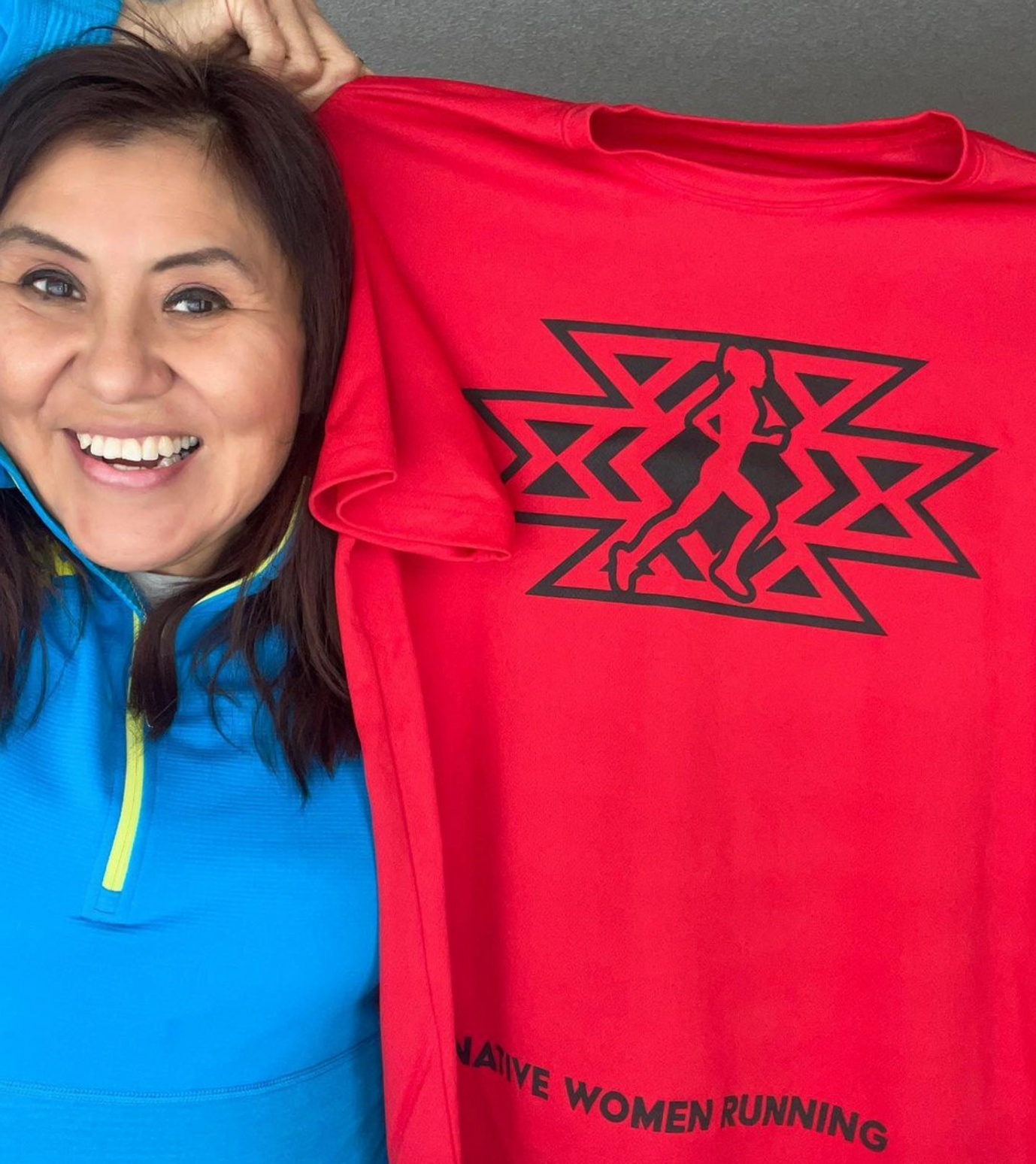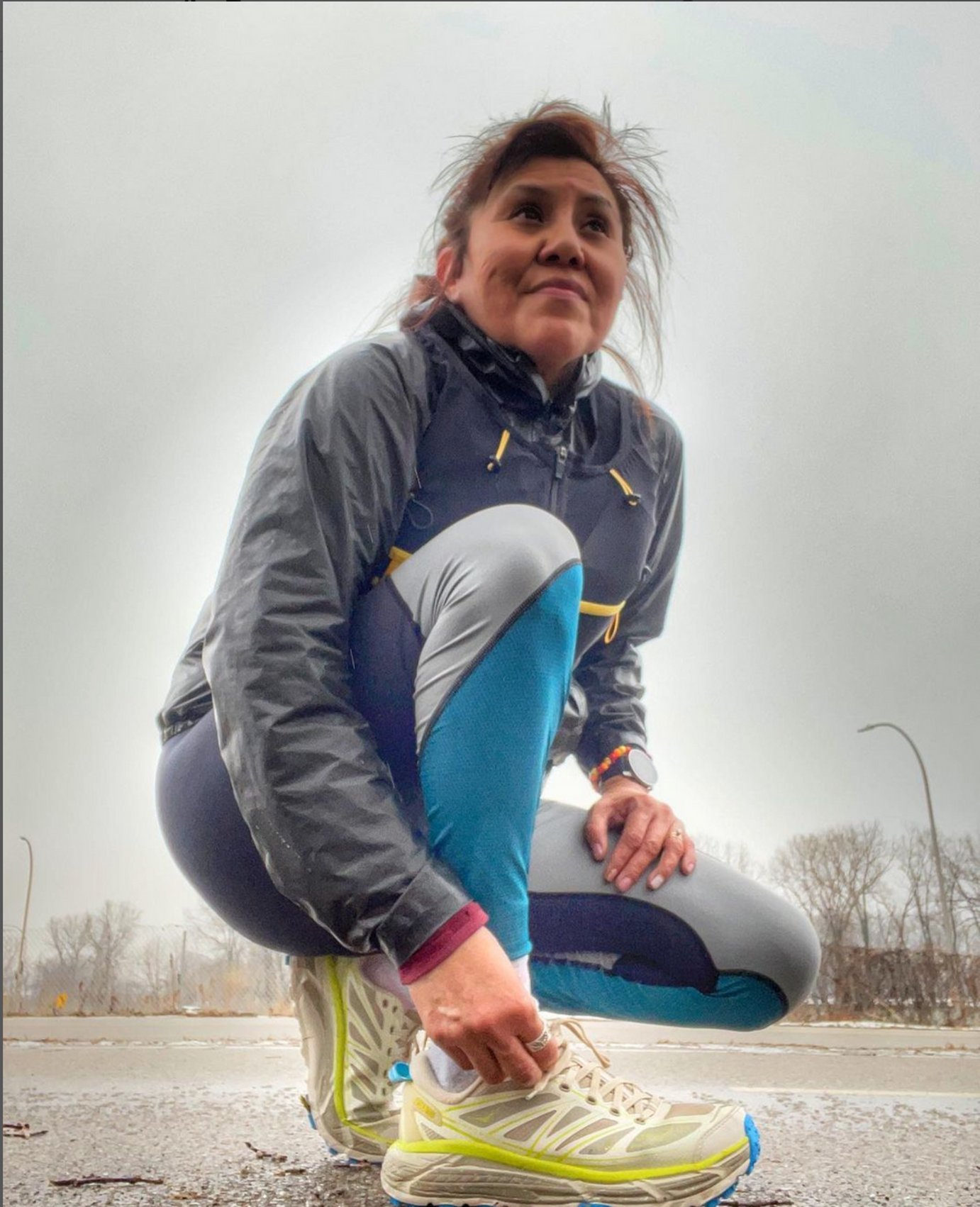Runner Verna Volker 'Sets her Heart and Mind on Big Mountains'
What started as a fitness quest turned into a mission to raise the bar of representation for Native women runners.

At first it was about fitness. But as so many runners will tell you, the experience quickly went deeper than that.
"It was in the midst of motherhood; I found the joy of running and the benefits. I run to smash goals, heal and to test how far I can go as an older woman," Verna Volker said in a post on her Instagram account.
In the act of becoming a runner, in training up from her first 5K to her first marathon to her first Ultra 100K, Verna Volker learned how to engage a tenacity that powers her steps but also powers a resolve to stand up for herself and for others in her community.
"I want my daughter to see an example of a Navajo woman who set her mind and heart on big mountains, and made it to the other side. Though not easy, it's possible," Volker posted.
If You Build It
When Volker started running in 2009, she didn't see herself or her experience reflected on the trails, or in health and fitness advertising.

A mother of four from the Navajo Nation who now resides in Minneapolis, Minn., she couldn't relate to the images of blonde women running in Boston Marathon t-shirts on Instagram. And while she knew of Native-American women running amazing races, she wasn't seeing their successes shared. That lack of representation propelled her motivation to address the whiteness she saw in the running world.
"Because I did not see myself in running, I wanted to accomplish this and share other women's stories who felt similarly. I started sharing authentic stories and journeys of Native women on social media," Volker said.
What began as an effort to raise awareness and to fuel her own motivation grew into Native Women Running, an online community of nearly 30,000 followers, where photos and messages from Native women runners from around the world unite through common victories and rally support through individual hardships.
"To us, [running] is spiritual, it's a place of healing. Running is medicine," Volker said. "A lot of people are carrying their trauma, a lot of people run for people they have lost. It's almost a ceremony."
Representation Led to Amplification
As the founder of a growing and vital virtual community, Volker now finds herself with a platform to raise awareness about other issues close to her heart.
An August 2021 post, reshared in January 2022, urged runners to take safety precautions on the trail after Ashling Murphy was killed while jogging in Ireland.
"As I read the story, my thoughts went to our women who run in cities and isolated areas of the reservation. We run for many reasons because we enjoy it. Personally, it draws me to this question, 'How am I protecting myself when I go out and run alone?'" the post read, accompanied by a photo of a self-defense tool and a list of 10 suggested safety measures for solo runners.
A commenter in the thread lamented that women, "constantly have to THINK about taking all these safety measures just to be able to exercise [their] bodies outside." Volker added that the Missing and Murdered Indigenous Women crisis in the U.S. and Canada is an additional lens on the post and discussion.
Homicide was the third-leading cause of death among American-Indian and Alaska-Native women and girls between 12- and 30-years-old, the U.S. News & World Report reported. In 2020, the National Crime Information Center counted 5,295 records for missing Native-American girls and women, the publication additionally shared. These numbers are all considered to be well underreported due to a variety of issues, including systemic racism and poor data collection.
To raise awareness and support around this cause, Native Women Running hosted the virtual Missing and Murdered Indigenous Women National Day of Awareness run May 2021, coordinated with Red Earth Running Co.
""I really have a heart for that," Volker said in an article published by the Cronkite News, "because through this work that I'm doing and these virtual runs, I have had women who messaged me their stories and real incidents where they've lost their mother or they have a niece who was never found."
Native Women Running is again hosting a virtual run this year to continue to raise awareness.
The Path Ahead

Volker chose to step into the spotlight because she knows the value of representation. She felt the deficit when she first started running, but rather than abandon her new-found hobby, she opened the door to the representation that was lacking.
But while representation matters, it isn't enough. And in Volker's journey from fitness jogger to race director and now to ambassador for Hoka running shoes, she's also learned that it's just as important to bring awareness to experiences that have caused harm.
First as an individual and now as an influencer, she has felt minimized. Her voice has been ignored or her message has been corrupted by those she considered partners.
"It was a lesson learned of how I want to be careful how I align, who truly cares about my work." Volker said.
"I do see these companies that want to make a change, I see that they see it, they recognize it, they name it as white fragility right across the board. Although it has been hard and taken a toll on my emotions, I now know I am bigger than this. I feel empowered enough to push through," Volker said.
